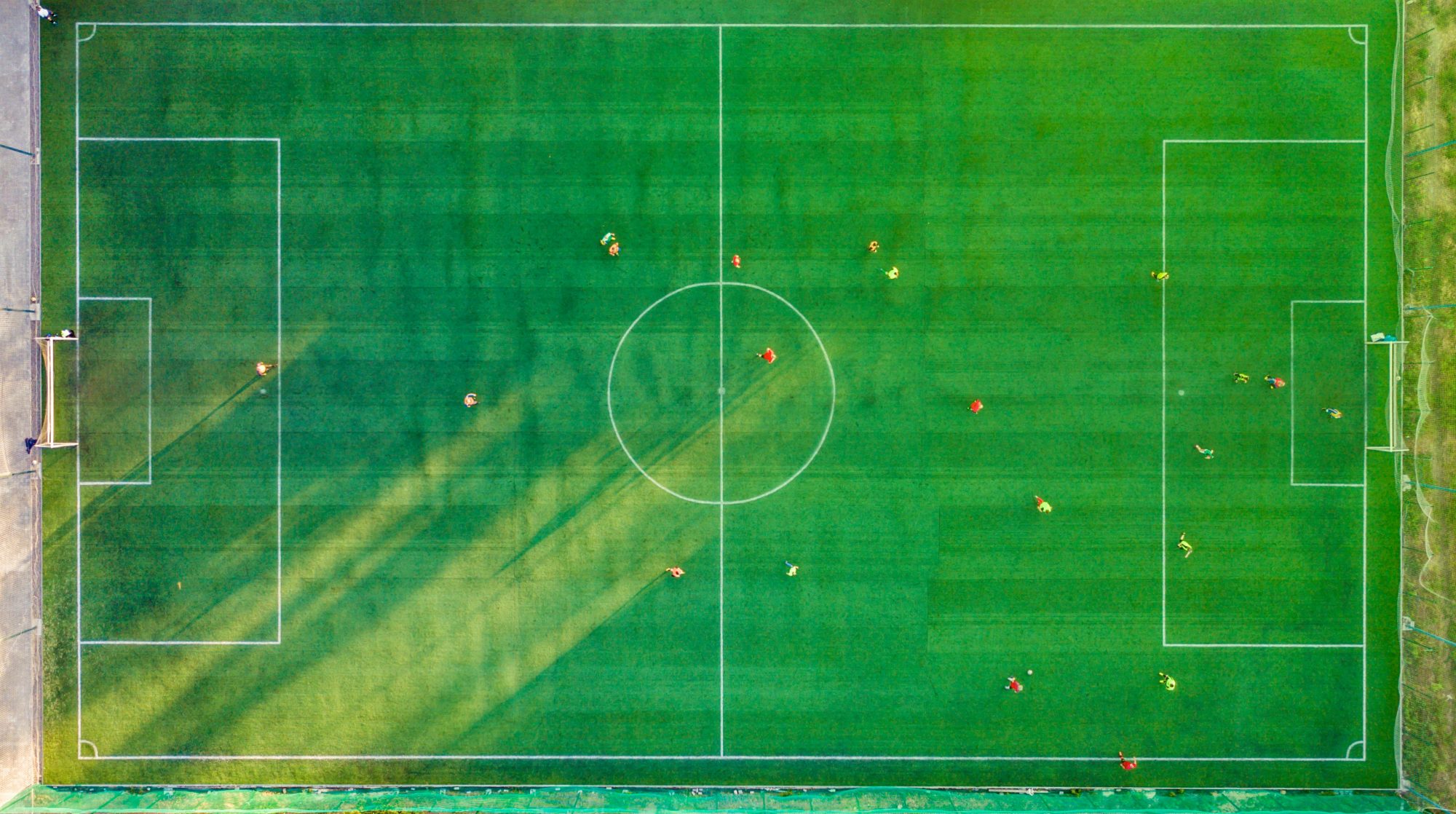
This article provides a sneak-preview of our ‘Introduction to Football Analysis’ course, coming this fall!
When conducting analysis in any setting, it’s important to ensure a balance is met, in every sense of the word. That includes considering and dissecting more than just the in-possession moments, and what the camera wants you to see on first glance. That includes considering both the positives and the areas of improvement, whilst keeping feedback constructive and actionable. It’s difficult for an analyst to achieve all of the necessary components of an outstanding analysis in one big bundle, but balance must be met regardless of time or place as part of that package.
So when creating balance in analysis, you must consider…
- Strengths AND weaknesses.
- In-possession AND out-of-possession elements of the game.
- A recognition of the ever-changing nature of football.
- A recognition of context and role, and what might change in a different context.
What else do you need to consider? That’s up to you. How do you create balance in your own analysis of a player, match, or team?
If you look at any work published out there by the great philosopher in analysis, Alex Stewart, you will see this balance come to life. Here’s an exceptional example from an article he wrote for Analytics FC on a familiar topic – Frenkie de Jong and his failed move to Manchester United.
Embed from Getty ImagesI enjoyed reading Alex’s article for a multitude of reasons, most notably his recognition of the various angles to the proposed move. He starts the article with an easy to follow premise. Manchester United need a midfielder, and would prefer for that player to possess the qualities of a Frenkie de Jong. So if not the Dutchman, who could Man United sign to be like Frenkie de Jong? The article then lists a few names, before delving into a wider discussion on why that may be a puzzling premise, and why Manchester United might actually need a different type of midfielder. With the help of his contributors, Alex details what Frenkie de Jong would bring to a United midfield, AND what he wouldn’t. He then closes the article by offering up solutions (actionable insights), such as United accompanying that Frenkie de Jong-esque signing with another more defensively-minded midfielder; or ensuring Fred sits as the deepest ‘holding’ midfielder, rather than de Jong as a possession-based ‘Deep-Lying Playmaker’.
Now that we’ve spoiled the entire article for you, take the time to read it yourself and pick out moments where the author works to provide balance in his analysis.
READ NOW: FINDING MANCHESTER UNITED A FRENKIE DE JONG ALTERNATIVE.
After you’ve read the article, highlight the points of balance in the article, and why the analysis stands out to you as being either well conducted, or poorly contrived (don’t pick this one).
To make you think all the more, if I was to now create a balanced review of the piece, I may pick out elements of the article that could have been expanded. For example, Alex offers up a solution to close the article, but he doesn’t offer up solutions to that solution. He suggests United sign a more defensively-minded midfielder even if they do secure a de Jong-esque figurehead, but he doesn’t name-drop or detail the important characteristics of any potential options for that defensive role. That’s not necessarily the point of the article, and in neglecting to deeply divulge into that facet of his take, he encourages us to go “scuba diving” – in search of answers all on our own.

This is where analysis is often overdone – probably most famously by us and our 3,000 word essays. Much of our work attempts to highlight all possible elements of the game, rather than selecting the most integral components to the situation. Alex achieves that balance by selectively divulging information that fits his syllabus, without busting open the treasure chest of all that could be found on the topic. He leaves some things a mystery, and that mystery makes his readers conjure up solutions of their own to engage in the discussion.
It then provides opportunity for a follow-up should he not feel a sense of “been there, done that”, or for someone else to suggest defensive names instead. If you’re curious, we casually mentioned players that could have been signed to supplement our Declan Rice pick, when we attempted to solve United’s defensive concerns last season. But as you can see, even in recognizing a potential weakness or area of improvement around the context of Alex’s article, I am able to keep that feedback constructive, and illustrate why decisions may have been made to keep the article as is, rather than expanding into new territories. Balance.
Embed from Getty ImagesI must admit, even I have a challenge in creating balanced analyses on my site, particularly when I write excitedly about the broad-ranging talents of a team or player. The in-possession elements of the game will always stand out in abundance, and the positives will always break free as being worth my time over any detractors. But I have to remember – that’s not going to help anyone wanting to learn more about the game, learn more about the team or player, or anyone actively using my insights in a professional setting.
When writing an analysis on why a player is so incredibly spectacular, it’s easy to get caught up in the minutiae of wonder. But you must illustrate areas of improvement for any situation, or at the very least, insights that could help take that team or player to the next level. As an example within my own work, when discussing Diyaeddine Abzi and his surprise move to France, I illustrated that while he’s an astute chance creator, he’s often incredibly overzealous in overhitting his passes into the penalty area and crosses into the box.

The tone of the article is still kept overwhelmingly positive, but I wanted to highlight an element of Abzi’s game that would genuinely take his career (and assist-making) to the next level. If I wanted to go further on that bit of knowledge, I could work with Abzi one on one to develop strategies around his crossing technique and panache, whilst using a plethora of video footage to create that connection.
Unfortunately for the Canadian, I’m running a website that aims to be somewhat stylish and attractive to readers within the realms of accessibility and intrigue, rather than a 1on1 coaching business. But you get the point. Not everything should be roses and daisies in football analysis. Otherwise, there would be nothing to work toward for anyone in the business. This doesn’t mean you should fabricate or exaggerate areas of improvement when none exist. Even if someone is virtually indestructible in nearly ever facet of the game (see Forge FC’s Alexander Achinioti-Jönsson), you can still mention that if the context were to change, the spectacularities may also change with it.
We saw that first hand when Messi moved from FC Barcelona to PSG, going from dazzling his way around La Liga as a 30-goal striker, to playing more of a creative role as a 6-goal striker in Ligue 1.
Embed from Getty ImagesAre Messi’s numbers bound to shoot back up like a rocket in 2022-23? Probably. That’s because the context has changed once more. The manager has changed; and the system and style of play have changed with it. The players around Messi have changed. His fitness levels, or even the ways in which he’s become settled in France have changed. This is what we mean when we discuss balance. It’s absolutely pointless to say that Messi scored 6 goals in Ligue 1 last season, and use that as justification for a falter in form. It’s even more pointless to do so without mentioning the other variables that play their part. For that matter, we’ve even purposefully chosen to neglect several other variables that could have played a part in Messi’s low goal-haul in his first season at PSG. We’ve done so as a direct desire to allow you to conjure up motions instead.
So with that, please don’t mistake us for a broken record. But context is key. You must be consciously aware in considering the ever-evolving nature of football. A player might not pull off a pass 100% of the time, despite being an amazing passer of the ball. What worked for Jadon Sancho at Borussia Dortmund, might not work for him now at Manchester United. If you can consider the factors around these situations that make those facts all the more complex (such as teammates), you can begin to create a more balanced analysis.
So to recap, when creating balance in analysis you must…
- Consider the context in which the situation occurs.
- Work to provide insight around both the good and the bad, whilst keeping feedback overwhelmingly positive and constructive.
- Provide actionable insights that can have real-world applications on the pitch.
- Consider all the angles within your scope, without drastically busting open the treasure chest of all that might exist around a topic.
Still not sure? Put pen to paper right now and practice by giving me your balanced review of this website.
When you’re ready to develop even more balance in your depth of knowledge, join us below.

This article is part of our Introduction to Football Analysis – Online Course with Rhys Desmond. See what else is in store for the course and navigate to the next section below.
See the entire course curriculum and jump around by visiting:
Introduction to Football Analysis – Online Course with Rhys Desmond
So there it is! A sneak peek at our Introduction to Football Analysis Course, this time on how to create balance in your analysis. Be sure to check out more of our Tactical Theory based articles, and follow on social media @desmondrhys to never miss an update. Thanks for reading and see you soon!
-> The difference between seeing and understanding in analysis
-> Recognizing and playing to your teammates’ strengths in football
YOU MIGHT ALSO ENJOY…
Why Jesse Marsch is perfect for the Canadian Men’s National Team
The American coach made his name across an incredibly successful spell at RB Salzburg between 2019-2021, but hasn’t been able to hold down the fort since. His brief stints at RB Leipzig and Leeds United showed signs of promise, but also many moments of doubt. So with Marsch being out of a top-tier job for…
Pep Guardiola – Manchester City – Tactical Analysis (2023-24)
This might finally be the year. It might finally be the year that Pep Guardiola and Manchester City don’t win the Premier League. Despite that, they’ve still been the most tactically complex team in the league, carrying on from much of the tactics that brought them a treble-winning triumph last season. Here is what Pep…
Game of Numbers #38 – Alejandro Garnacho’s intensity & awareness
It’s amazing to think that Alejandro Garnacho is only 19 years of age. Sometimes, you can see the rawness in his game. The facets that still need to be carefully developed. But as he ages, let’s hope he never loses his tenacity. His hunger for more. His appetite to win at all costs, even when…





7 thoughts on “Creating balance in your analysis”